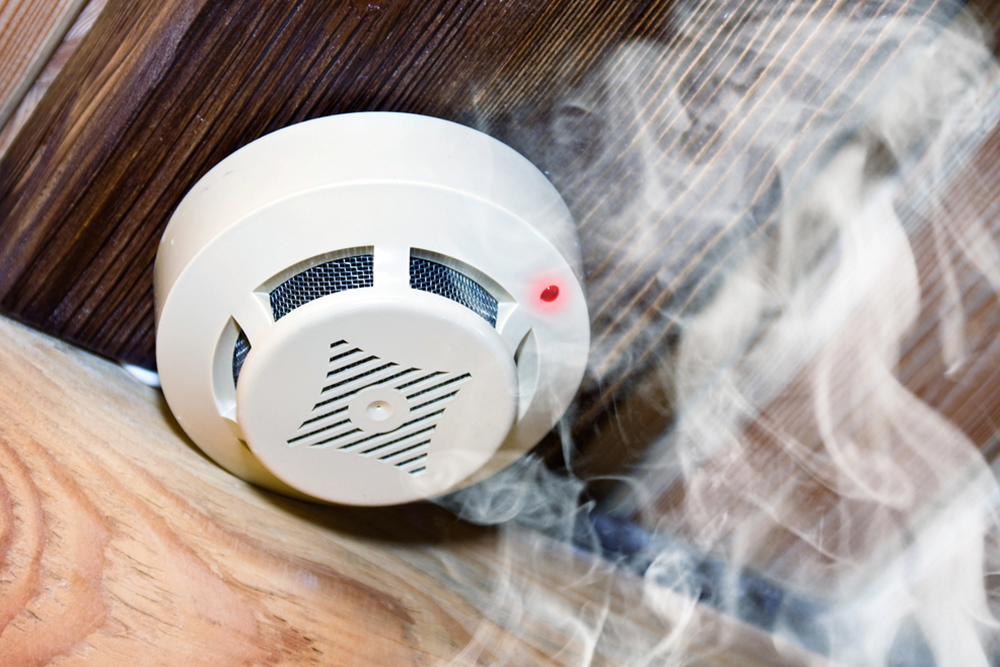 05
Feb
05
Feb
How To Stop A Fire Alarm From Beeping Continuously
- 0 Comment(s)
- February 5, 2025
A constantly beeping fire alarm can be a source of frustration, mainly when it occurs in the middle of the night or during an important task. If you are wondering how to stop a fire alarm from beeping continuously, it is important first to understand the common causes and the steps you can take to resolve them. This guide covers various issues that can trigger a continuous beep, offering practical solutions to restore peace to your home or business premise.
Common Causes of Continuous Fire Alarm Beeping
Before jumping into the solutions, it is crucial to understand why your fire alarm may be beeping continuously. The beeping is a warning sign, indicating something that needs to be addressed. Here are some common causes:
- Low Battery
A frequent cause of continuous beeping from a fire alarm is a low battery. Most alarms are programmed to emit a chirp or beep when the battery level is low, signaling that it is time to replace the battery before it fully depletes.
Quick Fix: Replace the batteries in your fire alarm when you hear the beeping. If your fire alarm uses a 9-volt battery, remove the old battery and install a new one. After replacing the battery, test the unit by pressing the test button to ensure the alarm is functioning correctly.
- Dirty Smoke Detector
Dirt, dust, and cobwebs can accumulate in the detector over time, blocking the sensors and causing the alarm to beep. This is especially common in areas with high dust or where the alarm has not been cleaned for a while.
Quick Fix: To clean your smoke detector, gently vacuum the exterior using a soft brush attachment to remove dust and debris. If cleaning does not stop the beeping, you may need to disassemble the detector and use compressed air to clean the inside. Be sure to follow the manufacturer’s cleaning instructions.
- Malfunctioning Smoke Detector
A malfunctioning smoke detector could cause it to beep continuously, even when no smoke is present. This issue could be due to aging components, damage to the sensor, or internal wiring issues.
Quick Fix: If cleaning or battery replacement does not resolve the issue, you may need to replace the detector. Detectors have a lifespan of about ten years, and after this time, they may start malfunctioning. If your unit is older, replacing it might be the best solution.
- High Humidity or Steam Exposure
Fire alarms near bathrooms, kitchens, or other areas prone to high humidity or steam can start beeping due to exposure to moisture. Steam from showers or cooking can trigger the sensor, causing false alarms.
Quick Fix: Relocate the smoke alarm to a drier, more suitable location. Ideally, alarms should be placed on the ceiling, away from vents, bathrooms, and kitchens. If relocating the alarm is not an option, consider installing a heat detector in places where humidity is high.
- Interference from Carbon Monoxide or Gas
Some fire alarms are equipped with carbon monoxide detectors, and if carbon monoxide levels rise, the alarm might emit a continuous beep. A gas leak or high levels of carbon monoxide can pose a serious health risk and should be addressed immediately.
Quick Fix:
If you suspect that carbon monoxide is the cause of the alarm, leave the premises immediately and call emergency services. Carbon monoxide is a colorless, odorless gas, and exposure to it can be fatal. It is crucial to take the beeping seriously and seek professional assistance if needed.
- Wiring Issues (For Hardwired Alarms)
For hardwired fire alarm systems, issues with the wiring can cause continuous beeping. Loose or disconnected wires can send faulty signals to the alarm, leading it to beep incessantly.
Quick Fix: If you suspect wiring issues, it is best to call a professional to inspect and repair the system. Please do not attempt to fix wiring issues on your own, as it can be dangerous. A certified technician will be able to diagnose and correct the problem safely.
- End of Life for Smoke Alarm
Smoke alarms typically have a lifespan of about 10 years before they need to be replaced. Over time, the components inside the unit can degrade, reducing its effectiveness in detecting smoke and fire.
Quick Fix: If your fire alarm is older than 10 years, it is time to replace it. Make sure that the new unit meets local fire codes and is installed according to the manufacturer’s instructions.
How to Stop the Beeping: Step-by-Step Solutions
- Step 1: Determine the Cause
Before you can stop the beeping, it is essential to identify the cause of the issue. Start by checking for the most common reasons, such as a low battery or dirt buildup. Look for a flashing light or an indicator on the alarm that might give you more specific details about the problem.
If the cause is not immediately obvious, you can move on to the next troubleshooting steps, as the issue might be linked to other factors, such as humidity, carbon monoxide, or even a malfunctioning sensor.
- Step 2: Replace the Battery
Replacing the battery is one of the easiest fixes for a beeping fire alarm. A low battery is often the culprit, and fire alarms are designed to alert you when the battery needs replacement. Always use the recommended battery type specified by the manufacturer.
If you need help determining which battery to use, check the user manual or the back of the alarm for instructions. After replacing the battery, reset the unit by pressing the test button to make sure the new battery is working, and the beeping has stopped.
- Step 3: Clean the Smoke Detector
As time passes, dirt, dust, and other particles can build up on the sensors of a smoke detector, potentially causing continuous beeping or false alarms. Cleaning the detector can help ensure it detects smoke properly without being triggered by environmental factors like dust. To clean your smoke detector, use a vacuum cleaner with a soft brush attachment or compressed air to remove dust and debris from the detector’s sensor area and vents.
Follow the manufacturer’s cleaning guidelines to avoid damaging the unit. If the alarm continues to beep despite cleaning, consider other causes, such as a malfunction or battery issue.
- Step 4: Test the Alarm
After replacing the battery and cleaning the unit, it is important to test the alarm to make sure it is functioning properly. Press the test button on the fire alarm to trigger a sound, confirming that the alarm is operational. A deeper issue may be at play if the alarm still beeps, even after replacing the battery and cleaning.
It could be that the detector is malfunctioning or other environmental factors are affecting its performance. In such cases, moving on to the next step is prudent.
- Step 5: Call for Professional Help
If you have gone through all the steps and the alarm continues to beep, it is time to seek professional help. Issues like wiring problems, faulty sensors, or carbon monoxide detection require the expertise of a trained technician. A fire alarm system may also need to be replaced if it is too old or malfunctioning.
Yadkin Fire & Safety: Reliable Fire Alarm Services
Yadkin Fire & Safety excels in keeping your fire safety systems in top condition. If you are experiencing ongoing issues with your fire alarm, our expert team is here to help. We provide fire extinguisher services, routine inspections, and comprehensive fire emergency service to protect your property.
Our technicians are trained to troubleshoot and fix fire alarm systems, ensuring that they are fully operational when you need them most. Do not leave a beeping alarm unchecked—reach out to us for prompt service.
Learning how to stop a fire alarm from beeping is an important skill for homeowners. Whether the beeping is due to low batteries, dirt, or a malfunctioning detector, addressing the issue quickly can help restore peace and ensure your safety system is always ready. By following these steps, you can troubleshoot and resolve most problems yourself. However, if the issue persists or seems more complex, do not hesitate to call a professional to make sure your fire alarm is in optimal working condition.

